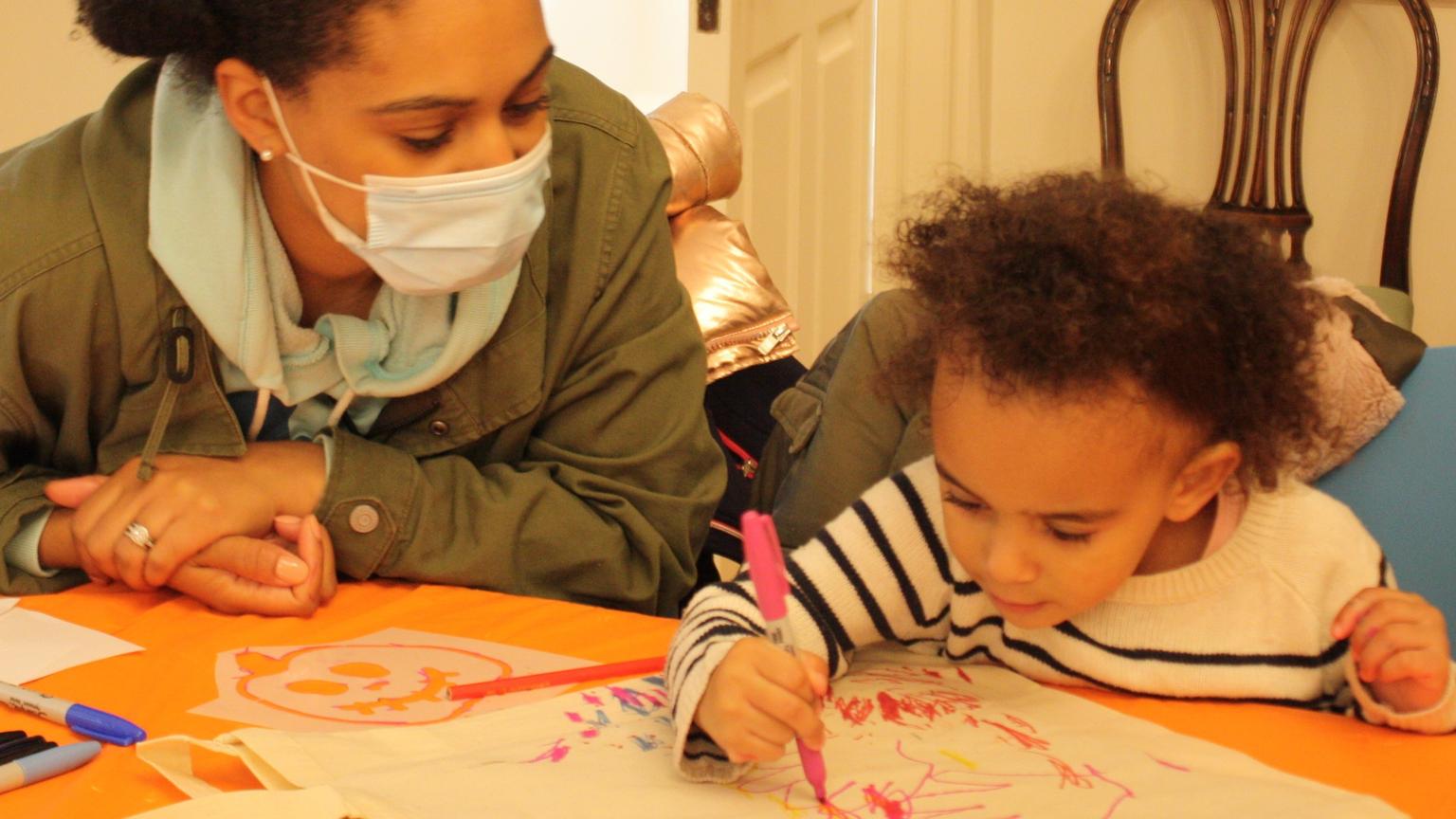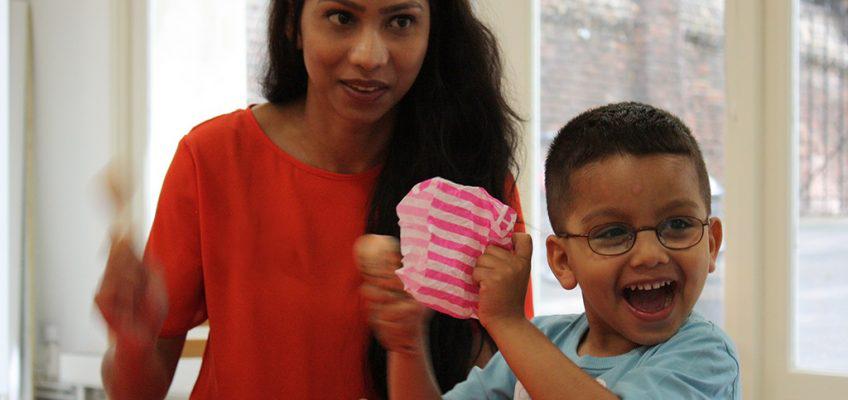Caro Howell on why museums are so important for young people

The director of the Foundling Museum explains why it’s crucial that museums have the resources to engage with young people.
The Foundling Museum tells the story of the Foundling Hospital – the UK’s first children’s charity, established in 1739, which cared for and educated thousands of children over two centuries. Its founder Thomas Coram worked with artist William Hogarth and composer George Frideric Handel to create a place where the arts, education and philanthropy went hand-in-hand.
Today, the Foundling Museum celebrates the power of art to change lives, and engaging with schools, families and local communities is central to its work. As the museum’s director, Caro has seen first-hand the impact that deep and sustained engagement with children and young people has had on their lives.
Caro kindly spoke to us in support of our new fundraising campaign, Energise Young Minds, which aims to raise £1 million to help museums provide creative opportunities for children, schools and young people.
Find out more about the campaign and how you can help us #EnergiseYoungMinds.
Art Fund: Why is it so important that museums are able to reach out and engage with young audiences?
Caro Howell: On a very simple level, young people are our future visitors, our future audience, so it’s vital that we engage them.
There’s actually a much, much bigger social programme here, which is, museums are spaces where they can encounter extraordinary things, completely beyond their day-to-day experience. They can encounter different cultures, different ideas – ideas that they may profoundly disagree with, art that they may absolutely hate and find ways to talk about it with their friends, to have constructive disagreements.
And at its heart, it’s about cultural capital, it’s about the ways that we break down division, that we enable social mobility, that we allow our children to have the widest possible experience of the worlds around them. And to deny them that, I think, is to deny them a fundamental human right.
What challenges currently exist for museums that are trying to engage with and provide services for young people?
I think the biggest challenge that museums face is the constriction of the curriculum. It’s so hard now for schools to bring their classes to museums, particularly if those museums are about art and culture. I think the STEM agenda, the crammed curriculum, these things are an enormous challenge for us. And, you know, OFSTED itself is in agreement that this widening of children’s cultural horizons is absolutely critical to their development as human beings, as citizens.
And, like anything, really high-quality provision costs money. You can provide things for schools to do themselves, to self-direct, but it’s so much more impactful if you have experts, historical experts, practising artists, people who can bring alive the collections that museums hold. And those practitioners need paying, and we want to give our children really high-quality resources – they deserve really high-quality resources – and we want to give them those things for free, but it needs to be paid for somehow.

What’s the risk if we fail to provide for engaging with young audiences?
I think if we fail to engage with our children the risks are twofold. On one hand, we are losing out on our future audiences. Also, importantly, for us as a sector, unless children are exposed to museums and see the wealth of ideas and opportunities that are there, how are they ever to know whether they themselves might like to work in museums? They might want to be an archaeologist or an art historian, or an art handler.
But also, we fail our children [if] we fail to give them the richest possible experience of the world – that opportunity to see themselves differently in the world, to see different possibilities for themselves, to have new experiences, different ideas, thrills that they wouldn’t otherwise ever encounter. This is what we all stand to lose if children are denied access to museums.
In terms of the programmes and work you do at the Foundling Museum, what impact have you seen on young people’s lives?
Here at the Foundling, our approach is inch-wide, mile-deep. We work with young people from early years through to young adults, over long periods of time, to try and actually have a sustained and lasting positive impact on their lives. We focus particularly on young people at the margins of society, who are facing disadvantage, either economic disadvantage, families living in poverty, but also particularly young people who’ve grown up in the care system.
And we know from our work, from talking to teachers, nursery teachers, primary school teachers, and from talking to our graduate trainees, that the work that we do is absolutely vital in closing the education attainment gap, in giving the children the cultural capital they need. But also, for our young trainees, [in] giving them the self-confidence and the self-esteem, that self-belief, that they can see a different future for themselves, a future that is beyond that which has been prescribed to them by the care system.
And we are seeing them going to university, starting degrees, doing amazing apprenticeships, and obviously, being paid as employees here at the museum to help deliver our programme – and that is an amazing thing to see.
Why does a campaign like Energise Young Minds matter?
A campaign like this matters because all of us who are passionate about museums and the stories and the ideas that they hold, we also feel as passionately about spreading those stories, and getting people involved to shape the stories themselves and tell those stories in new ways. And that will only happen if we, as institutions, have the capacity and the ability to engage younger audiences and to get them as excited about museums as we are, and as you are.
Energise Young Minds is a fundraising campaign to raise £1 million for museum projects that inspire young people. Watch our film to find out more.